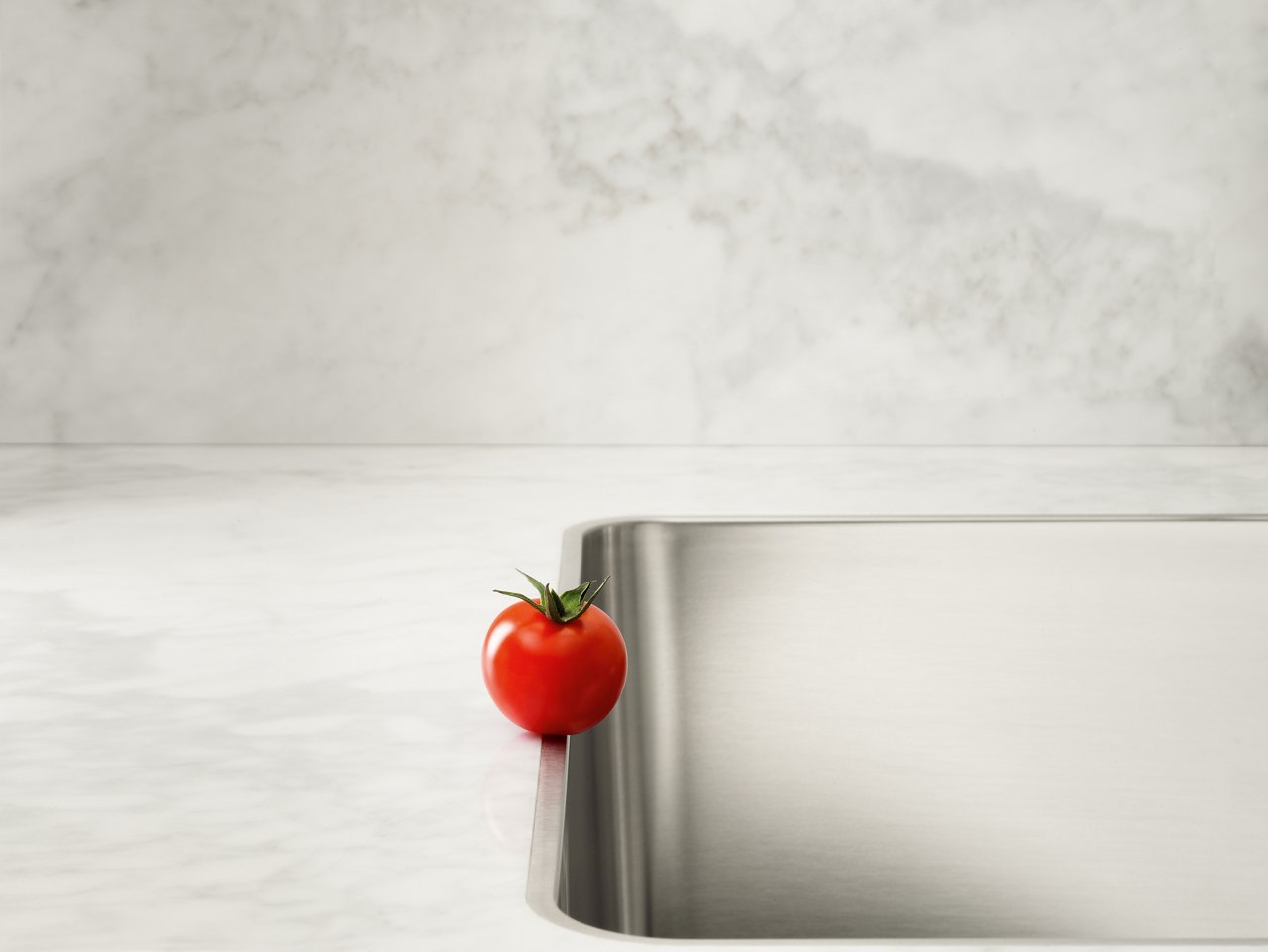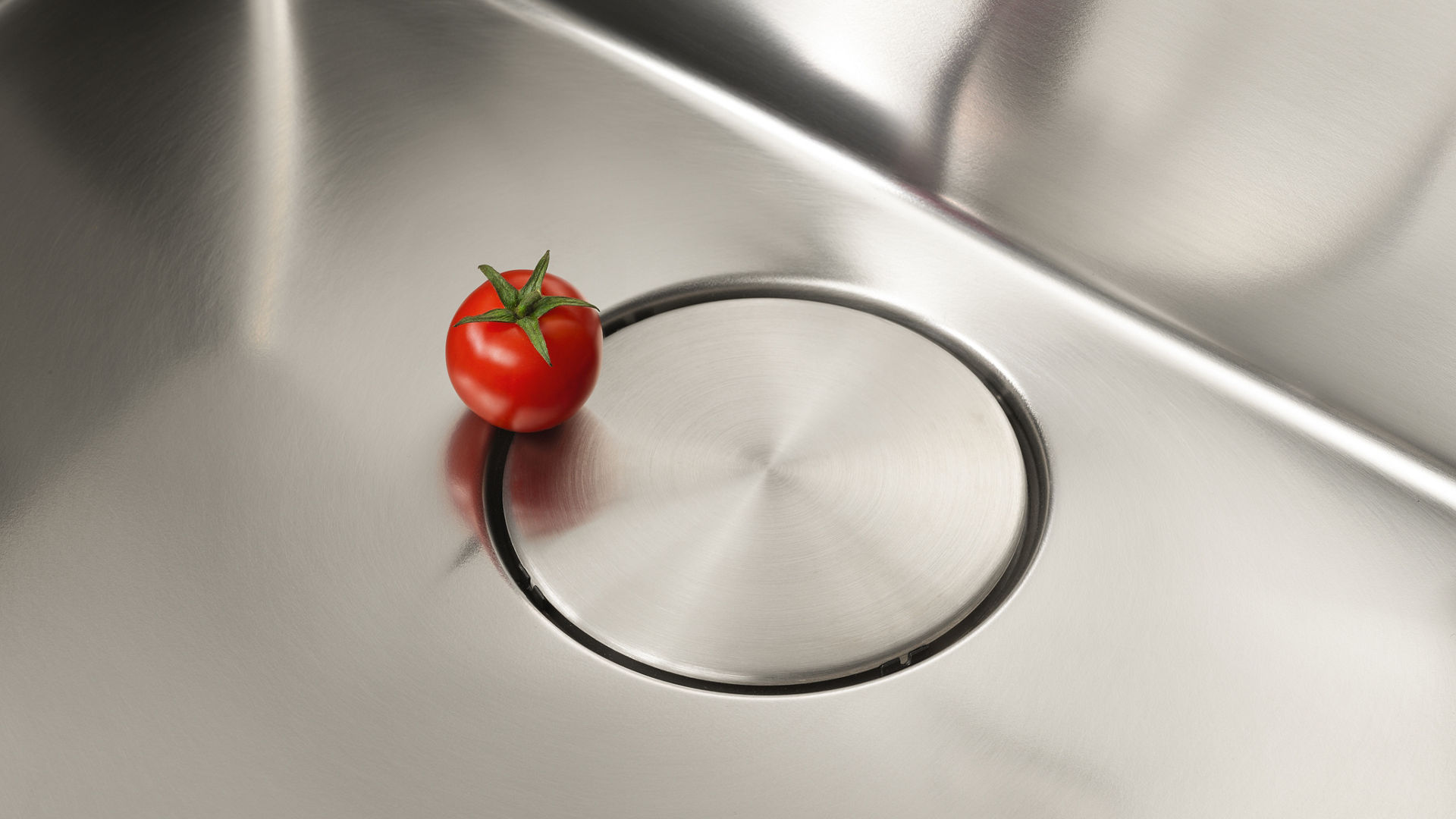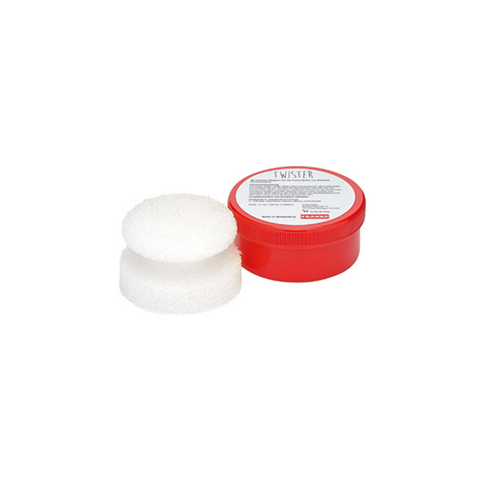CLEANING AND CARE FOR STAINLESS STEEL SINKS
Stainless steel is a durable material that can withstand even very rough handling, but hard or sharp objects can scratch this material. If you want to keep the surface of the sink free of any defects, be careful when handling similar objects. The sink is always scratched when washing dishes. Scratching the sink is a common natural consequence of use. By using FRANKE Twister cleaning paste, fine scratches can be polished and the sink remains shiny
REGULAR CLEANING OF STAINLESS STEEL SINK, IT IS SIMPLE IF THE FOLLOWING PROCEDURE IS FOLLOWED
Before the first use, the sink must be properly cleaned with one of the cleaning pastes, such as FRANKE Twister or another stainless steel cleaning paste, etc. We do not recommend dry cleaning powders. The sink is equipped with a protective layer from the factory, which binds grease and dirt to itself without proper cleaning. After use, wipe the sink and drainer with a damp soft cloth and detergent and rinse with clean water. In areas with hard water, you can use FRANKE Twister (or other cleansing cream, paste) to prevent the formation of a matte film of water deposits.
When using plastic pads in the sink, care must be taken not to leave them on the surface of the sink for a long time, as dirt and moisture will be kept under them, which will cause water deposits. The formation of water deposits can be prevented by drying the surface of the sink after each use. However, if these deposits form, they can be removed with a damp soft cloth and FRANKE Twister (or other cleaning cream, paste) applied to the surface and scrub the entire surface of the sink with a cloth. Do not use the rough side of the sponges.
Stainless steel stains are in most cases caused by water deposits on the surface. This is not damage to the material itself. Iron supply pipes and the use of wire rods can lead to the deposition of small particles on the surface of the sink. Although stainless steel does not corrode under normal conditions, these particles can cause the appearance of small brown spots of rust (so-called accepted rust).
Caution: Some household products contain ingredients that attack the stainless steel surface.
These are: bleaches, silver cleaners, foods high in pigment, acids, preparations containing chlorine and chlorides.
Stainless steel is a durable material that can withstand even very rough handling, but hard or sharp objects can scratch this material. If you want to keep the surface of the sink free of any defects, be careful when handling similar objects. The sink is always scratched when washing dishes. Scratching the sink is a common natural consequence of use. By using FRANKE Twister cleaning paste, fine scratches can be polished and the sink remains shiny.
In case of constantly recurring rusty stains, especially in newly built and reconstructed kitchens, we recommend checking whether there are deposits behind the aerator (sieve) in the kitchen faucet (pieces of bricks, metal chips, sand residues, mortar), which cause water pollution and subsequent formation of stains. After cleaning the aerator, clean the sink with one of the above cleaning agents (preferably FRANKE Twister or another cleaning paste), rinse with clean water and wipe dry.







